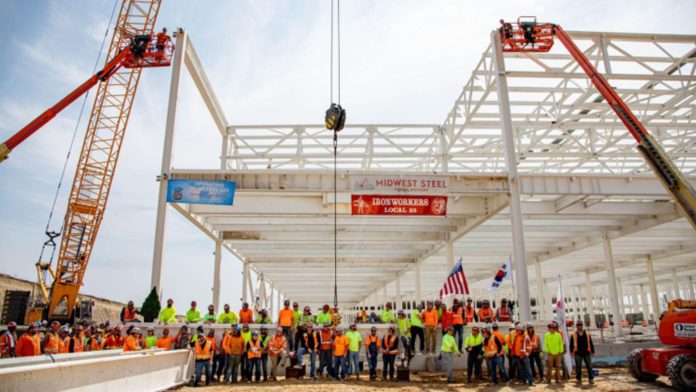Starting in 2025, Toyota and LG Energy Solution (LGES) will work together to supply lithium-ion batteries for use in the Japanese automaker’s electric vehicles produced in the United States.
The U.S. Inflation Reduction Act, which encouraged a tidal wave of investments in new EV battery plants in North America, catalyzed the Toyota-LGES announcement. The IRA and other U.S. legislation give incentives to increase American manufacturing of EVs, batteries, and raw materials.
LGES will invest $3 billion in its battery facility in Holland, Michigan, to supply Toyota’s Kentucky plant with specialized production lines.
LGES and General Motors are also partners in the Ultium battery joint venture, which is constructing a different $2.1 billion plant near Lansing, Michigan, to supply GM’s electric vehicles.
As a result of the agreement with Toyota, LGES will now supply batteries from its eight jointly owned and operated North American plants to five leading manufacturers, including Stellantis, Hyundai, and Honda.
According to Benchmark Mineral Intelligence, at least 37 battery factories are operating or planned nationwide, with a total annual production capacity of 1.3 terawatt-hours (TWh). That would be sufficient to fuel more than 10 million EVs.
Compared to North American expectations, Benchmark estimates that there are 291 battery plants either operating or planned in China, with a total annual manufacturing capacity of 6.1 TWh.
LGES will deliver high-nickel NCMA pouch-type battery cells and modules to Toyota from its Michigan factory annually with 20 gigawatt-hours. That is sufficient to produce more than 250,000 EVs annually.
Toyota will assemble the modules into battery packs and put them in brand-new EVs in Georgetown, Kentucky. By 2030, Toyota has stated that it expects to produce up to 3.5 million EVs and aspires to have 30 EV models across the globe under its Lexus and Toyota brands.



